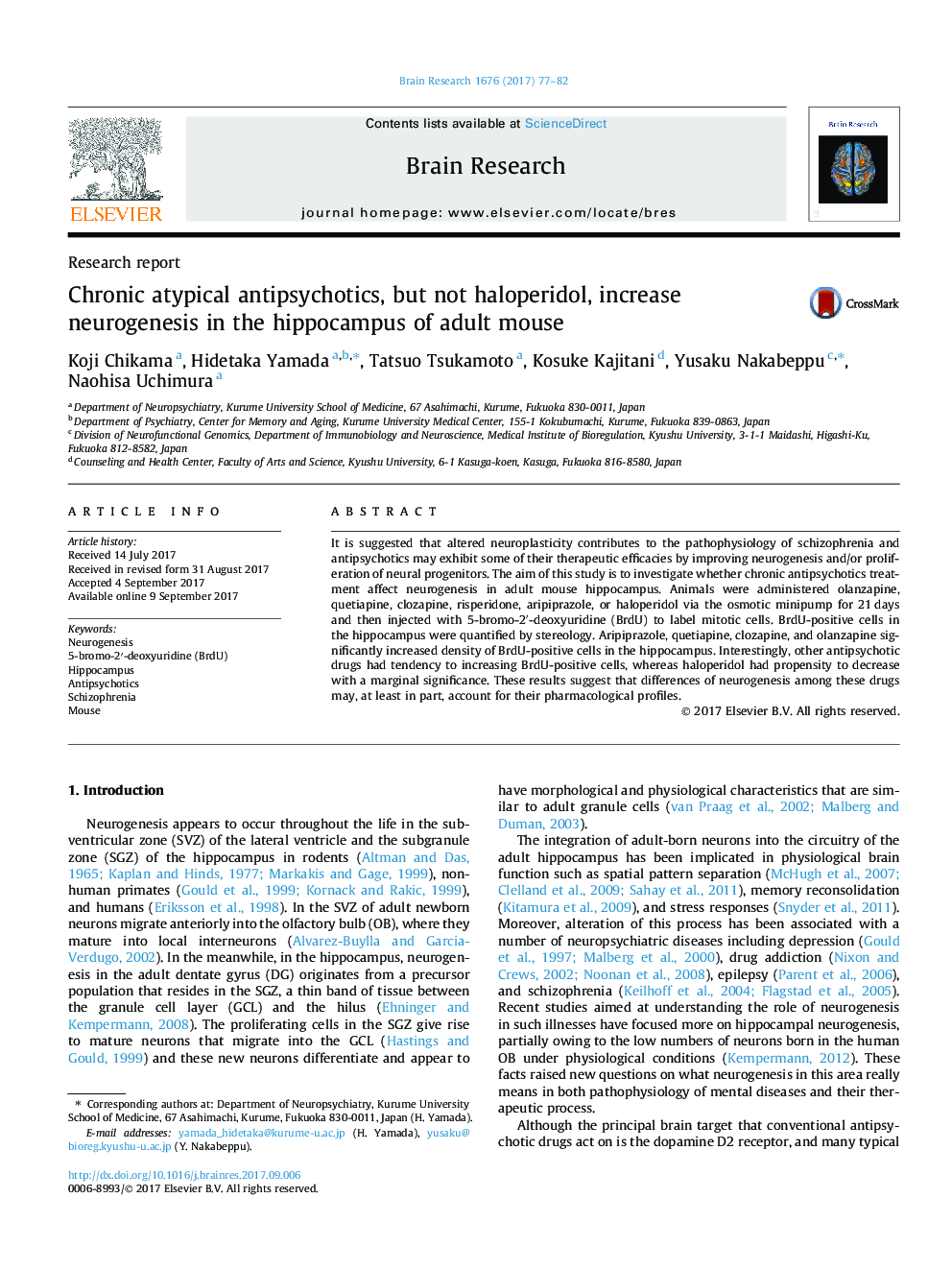| کد مقاله | کد نشریه | سال انتشار | مقاله انگلیسی | نسخه تمام متن |
|---|---|---|---|---|
| 5736676 | 1613769 | 2017 | 6 صفحه PDF | دانلود رایگان |
- We examined the effects of antipsychotic drugs on the hippocampal neurogenesis of adult mice.
- Atypical antipsychotics, but not haloperidol, increased BrdU positive cells.
- Hippocampal neurogenesis may serve to exert therapeutic effects of antipsychotics.
It is suggested that altered neuroplasticity contributes to the pathophysiology of schizophrenia and antipsychotics may exhibit some of their therapeutic efficacies by improving neurogenesis and/or proliferation of neural progenitors. The aim of this study is to investigate whether chronic antipsychotics treatment affect neurogenesis in adult mouse hippocampus. Animals were administered olanzapine, quetiapine, clozapine, risperidone, aripiprazole, or haloperidol via the osmotic minipump for 21Â days and then injected with 5-bromo-2â²-deoxyuridine (BrdU) to label mitotic cells. BrdU-positive cells in the hippocampus were quantified by stereology. Aripiprazole, quetiapine, clozapine, and olanzapine significantly increased density of BrdU-positive cells in the hippocampus. Interestingly, other antipsychotic drugs had tendency to increasing BrdU-positive cells, whereas haloperidol had propensity to decrease with a marginal significance. These results suggest that differences of neurogenesis among these drugs may, at least in part, account for their pharmacological profiles.
Journal: Brain Research - Volume 1676, 1 December 2017, Pages 77-82
